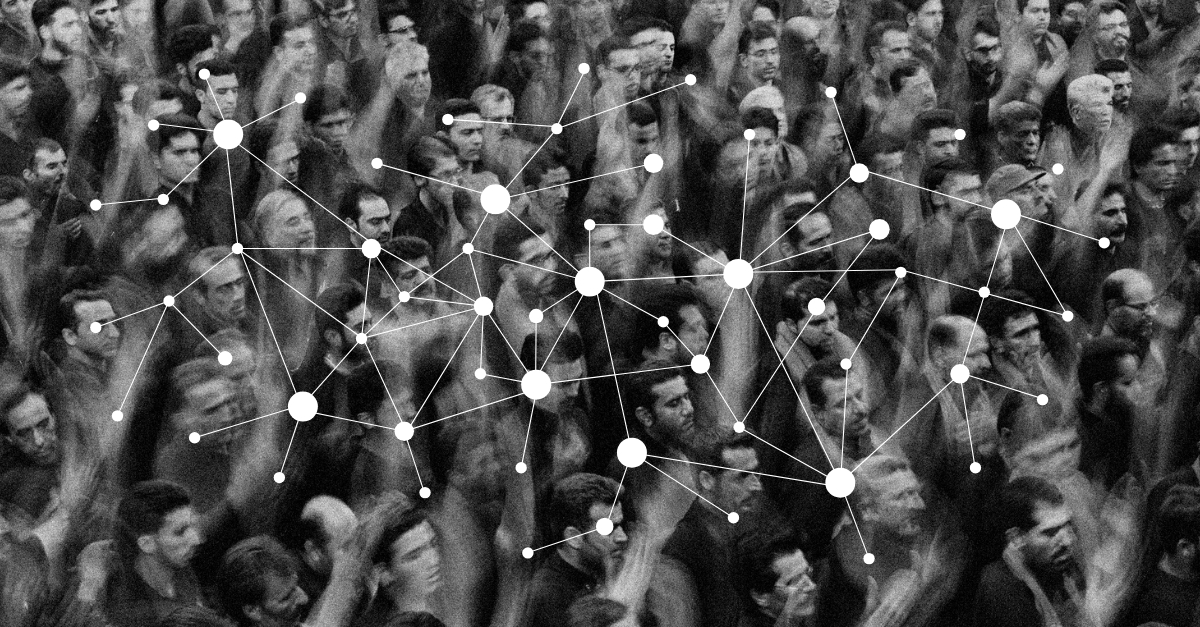Article Summary
Key Points
Video
Full Article
How has brand loyalty changed with the rise of convenience shopping?
A brand is something powerful. It connects with us deeply, much deeper than the convenience of getting my package next day.
Millennials, Amazon, and Algorithms... oh my!
Last month one of our customers, Staples Promotional Products Canada hosted an intimate client focused retreat in Halifax called the Staples Advisory Board. A Chance to bring together key clients and partners offsite to brainstorm, ideate, and learn about marketing challenges across industries.
As part of the experience I was invited to join a panel and explore the topic of:
“Brand loyalty in a world where algorithms are reinforcing preferred content, retailers are revamping loyalty programs to offset the rise of convenience shopping giants like Amazon, and millennials are more price conscious and willing to shop no-name than their predecessors, the balance between acquisition and retention of customers is in flux. What does this mean for brand loyalty, and how does merchandise fit in the mix?”
This topic is relevant for everyone across industries and business models and for this months Toolkit I decided to share the questions and answers from the panel.
Does Convenience trump brand loyalty?
This is a pretty complex, nuanced question. Every industry faces its own challenges and definitions of convenience (consumer packaged goods vs. services). For this question I would define convenience as “how easy is it for me as an end-user to obtain the product or service I'm looking for”.
I would argue that convenience does not trump brand loyalty. A brand is something powerful. It connects with us deeply, much deeper than me getting my package next day. Brands make us feel cool, sexy, wealthy, special, and connect us to a larger group of like minded people. To me if an organization's brand has been executed thoughtfully across all customer experience touch points then brand loyalty trumps convenience every time.
Although I think the power of brand outweighs the power of convenience. I also think to some degree convenience is a standard all brands should pursue because it helps strengthen overall brand and customer experience. In my mind when convenience trumps brand loyalty it’s mainly as a result of a product or brand itself being looked at as a commodity product and has no brand strength at all to begin with.
To me if an organization's brand has been executed thoughtfully across all customer experience touch points then brand loyalty trumps convenience every time.
Could leaning into convenience drive brand loyalty?
Definitely, convenience should be thought of strategically and holistically as apart of service delivery and overall customer experience. Creating a more convenient way of delivering your products or services will definitely increase brand loyalty assuming brand identity and touchpoints throughout an organization are thoughtfully considered.
There is nothing worse than interacting with an organizations new digital touchpoint but noticing that experience is not cohesive across other touchpoints. If you’re being strategic about convenience then you also need to consider how that connects to your goals and experience you’re trying to drive across the entire organization.
What role do membership-based business models play (think COSTCO) and is there a place for them in driving brand loyalty? Does this model supersede one of convenience or do you have to have both?
I see membership based models being very industry specific. If your business model or service offering are a good fit for membership based service it could definitely help drive brand loyalty. I see a membership model as a form of convenience, not competing against it. Brand loyalty comes into play once your target audience is a member. Typically in those models you’re paying for access whether its deals, or frequency and that can help drive loyalty since you’re asking for some level of commitment from a client. Reinforcing brand loyalty however only starts after the membership begins. It’s heavily reliant on a consistent customer experience across all touchpoints over a long period of time to constantly reinforce brand loyalty.

Which is the bigger challenge in your business: Demand creation and acquisition, or customer retention?
We are a startup still fairly young, approximately 5 years in now so for a company this young I feel like our brand awareness is something we always need to work on. We are still targeting more breadth in our reach in terms of brand awareness, as a result I would say acquisition is still a big focus for us and takes a lot of work. I don’t have a sales team yet so it’s primarily done by myself and my business partner.
Our retention level is high as a result of our work and the fact that we have become such an integral part of our clients teams and strategy, as a result we do get a lot of inbound through reference or word of mouth but active acquisition is something we work on all the time.
I have to wear many hats as do most entrepreneurs so I have to spend more time thinking about the best use of my time and how I can be most efficient with my time when it comes to demand creation and acquisition.


How do you see marketing (particularly acquisition strategies) evolving to offset the myopic nature of digital algorithms that are increasingly controlling the consumer awareness environment?
Overall through my business I’m seeing marketing and technology increasingly shifting under one roof; specifically brand, customer experience, and technology (I talked a bit about this in our last Toolkit Branding's New Era).
I’m a big fan of algorithms. As a consumer I love being advertised what I need when I need it. Or something that I may not need but based on my data I will probably be interested in at some point.
For organizations it’s become significantly easier to reach the right consumer at the right time, at scale assuming you have the right expertise. Algorithms are also hyper segmenting target audiences for you so that your content is getting to the exact audience you intend on reaching.
I think that it’s becoming increasingly difficult for brands to reach their audiences because of the sheer volume of noise but thats not necessarily a bad thing.
This is not a groundbreaking idea, but I think all companies when it comes to marketing efforts, especially in a consumer business need to think of themselves as media companies. Be creative and produce good quality content not for the sake of creating content but to communicate ideas and value to audiences.
In the B2B space it’s a bit harder but every business person has the same personal habits as consumers so it’s about finding out how to market your business, or process, in a way that’s interesting or has value on a consumer level.


Google Shopping could be poised to become a one-stop marketplace, presenting retailers products in the Google hub as opposed to leading consumers to the retailers’ websites. Threat or opportunity?
Opportunity. Google’s objective is to make money by enabling targeted advertising. Consumers are becoming much more knowledgeable about what’s a paid for ad versus what is being recommended based on their data and algorithms so sponsored pages or ads are being glossed over unless they're actually targeted.
Digital Marketing is a specialized skill and ideally an organization has a team or person on the team that understands the algorithms across all the different channels and how to play in that world in order to get your ads to the right people at the right time. Without those expertise I think it becomes a threat because you’re competing with brands that see the value and are building teams to help get their ads noticed and engaged with across multiple channels. On the other hand if you don't have the resources to build these teams I also believe the right content and content strategy can get you very far and can be done strategically with less resources.
Consumers are also becoming much more knowledgeable about what’s a paid for ad versus what is being recommended based on algorithms.
Could promotional products ever play a role in innovating the brand engagement experience, or in driving customer/consumer loyalty in your company?
I love promo products, I think they’re a powerful tool.
My first business was a surf travel company in a city with no ocean (you can surf on the lakes which is a longer story). Towards the end of our first year we had people all over the world submitting photos online through social media etc with our promo products which we took a retail strategy with. We had limited resources as a startup so our approach was heavily reliant on brand, event, and community building which are extremely powerful. Something as simple as a sticker or pack of stickers given with every order was such a powerful strategy for us. To this day in famous surf spots around the world you will see stickers we produced and asked people to stick in their local surf spot, take a photo, and post it.
What I learned is that I looked at promo products as individual product lines. If it's a t-shirt, I would think of it as a clothing line. We did the research to see what types of design and material are trending in the fashion world. Found blanks that resemble cuts that are trending, spend the extra time on design. I think it’s less about who the brand is and more about just creating a thoughtful piece that people will be proud to wear. Promo pieces and event marketing have been a strong piece of our brand growth with both businesses.




